The Comcover Awards for Excellence in Risk Management (the Awards) help to raise the profile and significance of risk management across the Commonwealth by supporting and sharing the promotion of best practice risk management. Award recipients and initiatives are promoted through Comcover’s risk and education program, case studies, guidance, and seminars.
The Assistant Minister for Finance, Charities and Electoral Matters, Senator the Hon Zed Seselja, presented awards to the winning entities at a ceremony at the Hyatt Hotel Canberra on 6 November.
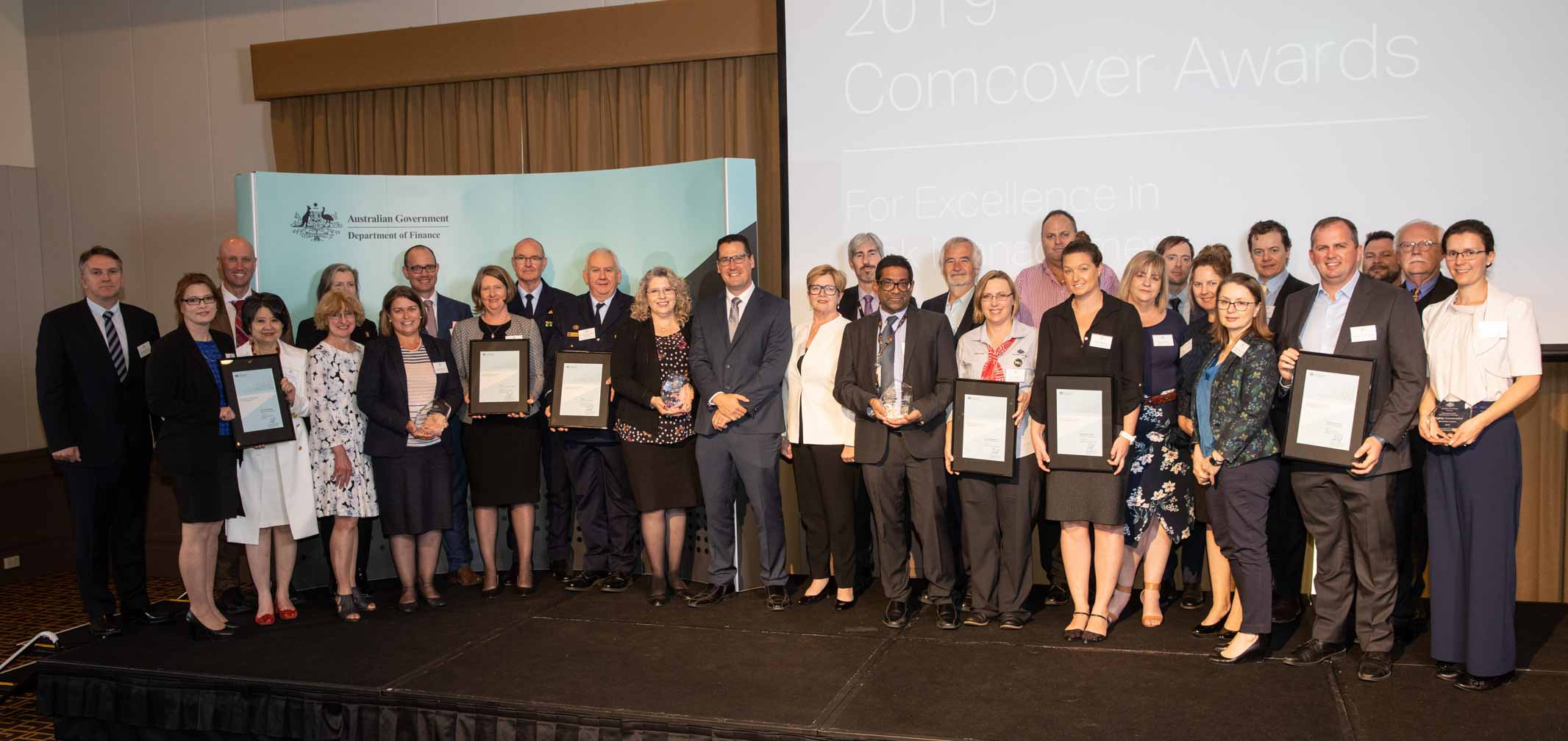
Photo of the award recipients with Senator the Hon Zed Seselja.
Awards in the Enterprise Wide Category
The Enterprise Wide Risk Management category showcases entities that have systematically embedded risk management into their business processes and have developed a high level of capability and maturity.
Winner: Department of Foreign Affairs and Trade
To achieve its outcomes of advancing Australia's international strategic, security and economic interests, and its obligations to support Australians abroad, DFAT needs to engage with a large, complex risk environment.
The department has developed a framework that incorporates all elements of the Commonwealth Risk Management Policy to a high level.
The framework has strengthened decision making and has contributed to improving their engagement with others through the better identification and management of shared risks.
The focus on engaging with stakeholders to deliver the Government’s objectives has seen them take responsibility for complex projects that traditionally may have been outside of their core responsibilities.
For example, DFAT had responsibility for leading the Australian Government’s commitment to the Coral Sea Cable System. This project, valued at up to $200 million, was the delivery of an undersea telecommunications cable connecting Papua New Guinea, the Solomon Islands and Australia.
One of the key features of DFAT’s framework is the promotion of eight attributes that contribute to transforming the culture of the department.
These are communicated and promoted from the Secretary down to build the cultural expectations of how risk will be managed.
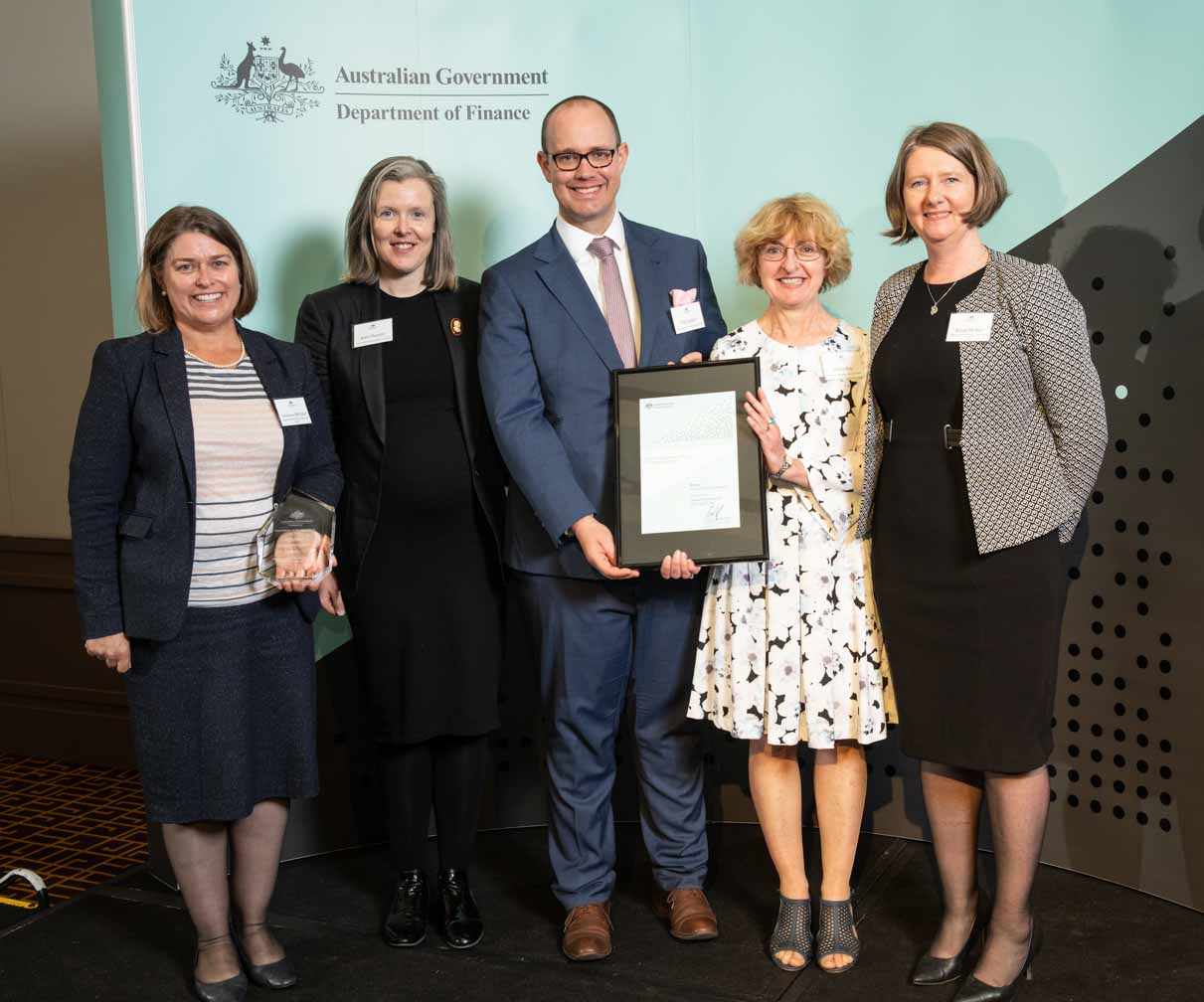
Photo of the Enterprise Wide Winners - Department of Foreign Affairs and Trade
Highly Commended: Department of Agriculture
Agriculture is one of the largest Commonwealth departments with a diverse role as a policy advisor to government, regulator, researcher, program administrator, service provider and market access negotiator.
The department has been on a journey over the past five years of embedding risk management into all their operations.
It has adopted a mature approach to managing risk as evidenced by:
- the commencement of a risk culture program
- supporting the development of a comprehensive risk management plan for the implementation of the proposed new Export Control Act, and
- facilitation of workshops to identify and review risks relating to the department’s new Live Animal Exports processing schedule.
The department’s business requires it to operate in an increasingly contested international environment.
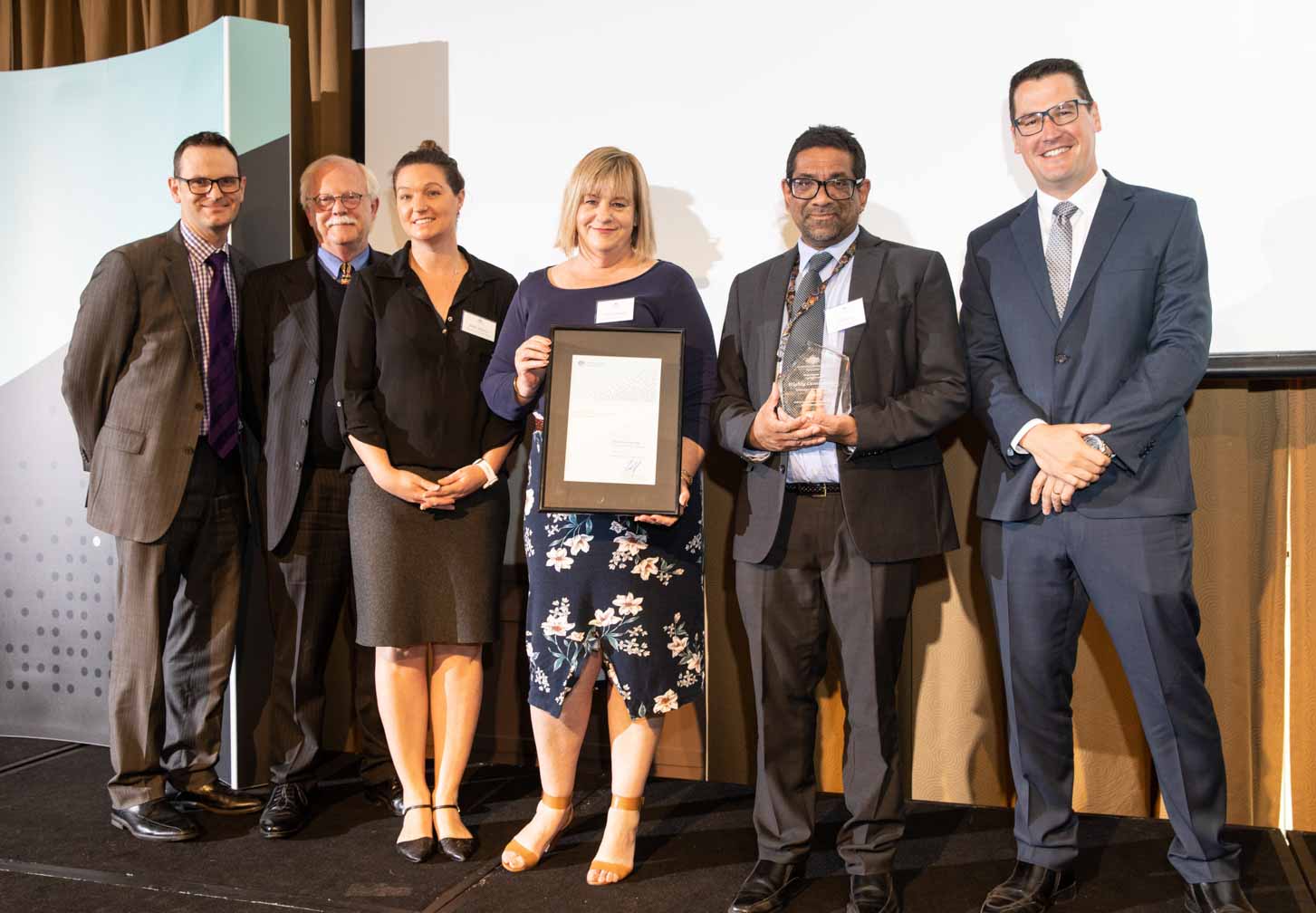
Photo of the Enterprise Wide Highly Commended Recipients - Department of Agriculture
Honourable Mention: Australian Bureau of Statistics
The ABS has a strong record of achievement, providing statistics to inform the important decisions made by government that impact business and the community.
The agency culture has traditionally been strongly geared to technical delivery.
The 2016 Denial of Service Attack, and the 2017 Australian Marriage Law Postal Survey, together with an audit by the Australian National Audit Office, led the agency to review the challenges they faced in embedding risk management as part of day-to-day business.
The ABS recognised the need to recast frameworks and systems, to embed risk into key decision making, enabling them to be more innovative and timely in meeting their corporate objectives.
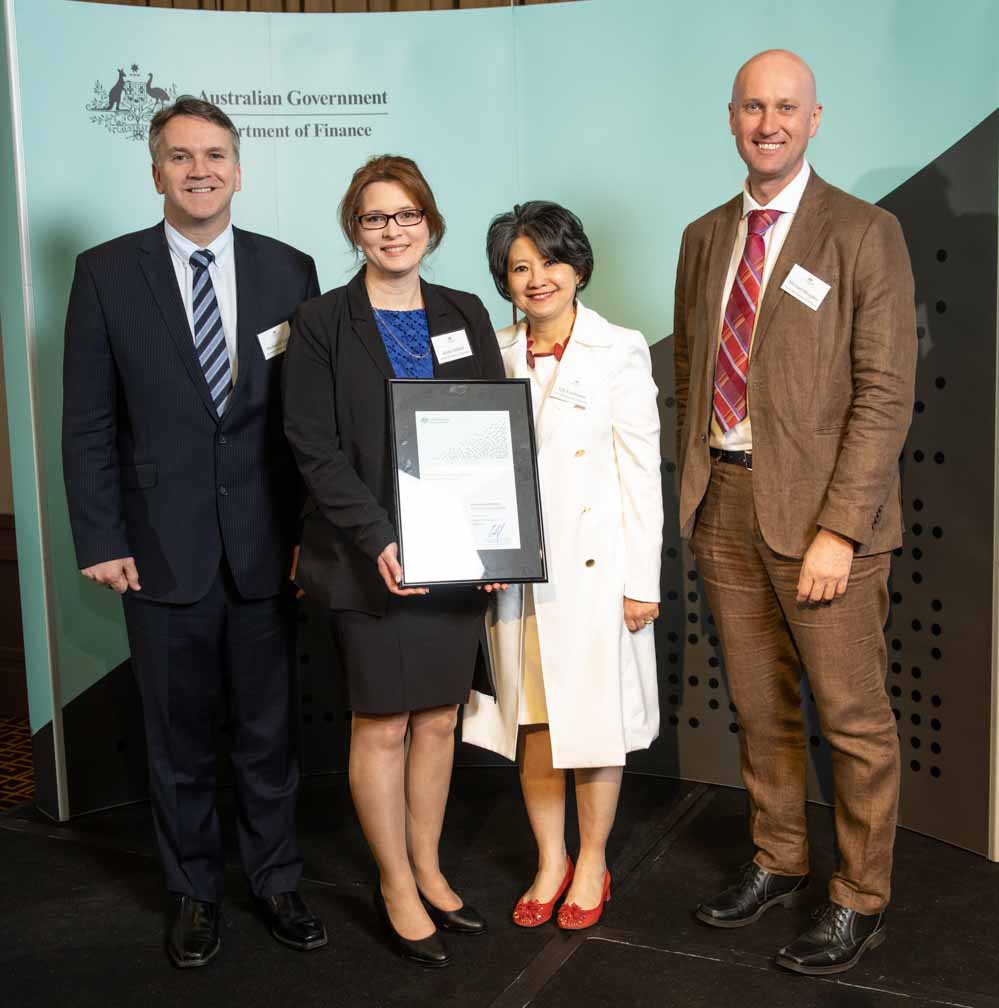
Photo of the Enterprise Wide Honourable Mention Recipients - Australian Bureau of Statistics
Awards in the Risk Initiative Category
The Risk Initiative category highlights the successful delivery of a key government program or services with outstanding ability to manage risk well.
Winner: Department of Defence Joint Logistics Command Defence Fuel Network project
The Department’s Defence Fuel Supply Chain (DFSC) purchases, stores and issues over $430 million of fuel per year (518 million litres), operating over 100 fuel storage and distribution sites. It is a critical enabler of Australian Defence Force capability.
A systematic approach was adopted that targeted many risks simultaneously and created an environment where challenges were being openly addressed in a committed manner.
There was a clear line of accountability, and a structure was established to align the process to the required legislative safety standards.
Governance functions have been embedded in the Chain of Command, line management, and committee structures, and specific training has addressed learning and development needs.
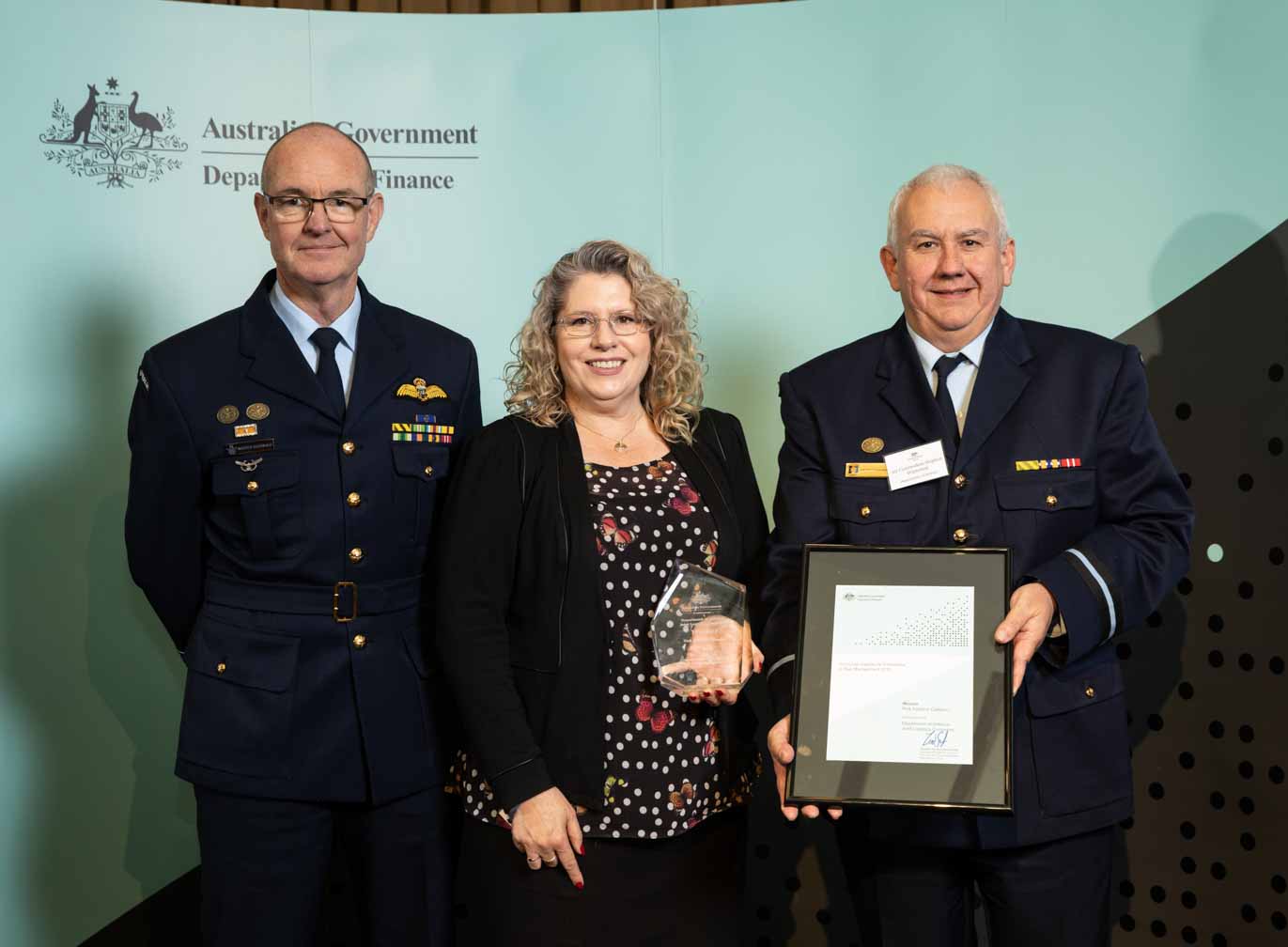
Photo of the Risk Initiative Winners - Department of Defence Joint Logistics Command Defence Fuel Network project
Highly Commended: Department of the Environment and Energy Climate Compass project
The department’s Climate Adaption, Risk and Science Section has, in partnership with CSIRO, developed a climate risk management framework for Commonwealth entities to consider when identifying the impact of climate risk on policies, programs and assets.
This initiative will help entities consider and manage the risks and opportunities arising from the changing climate.
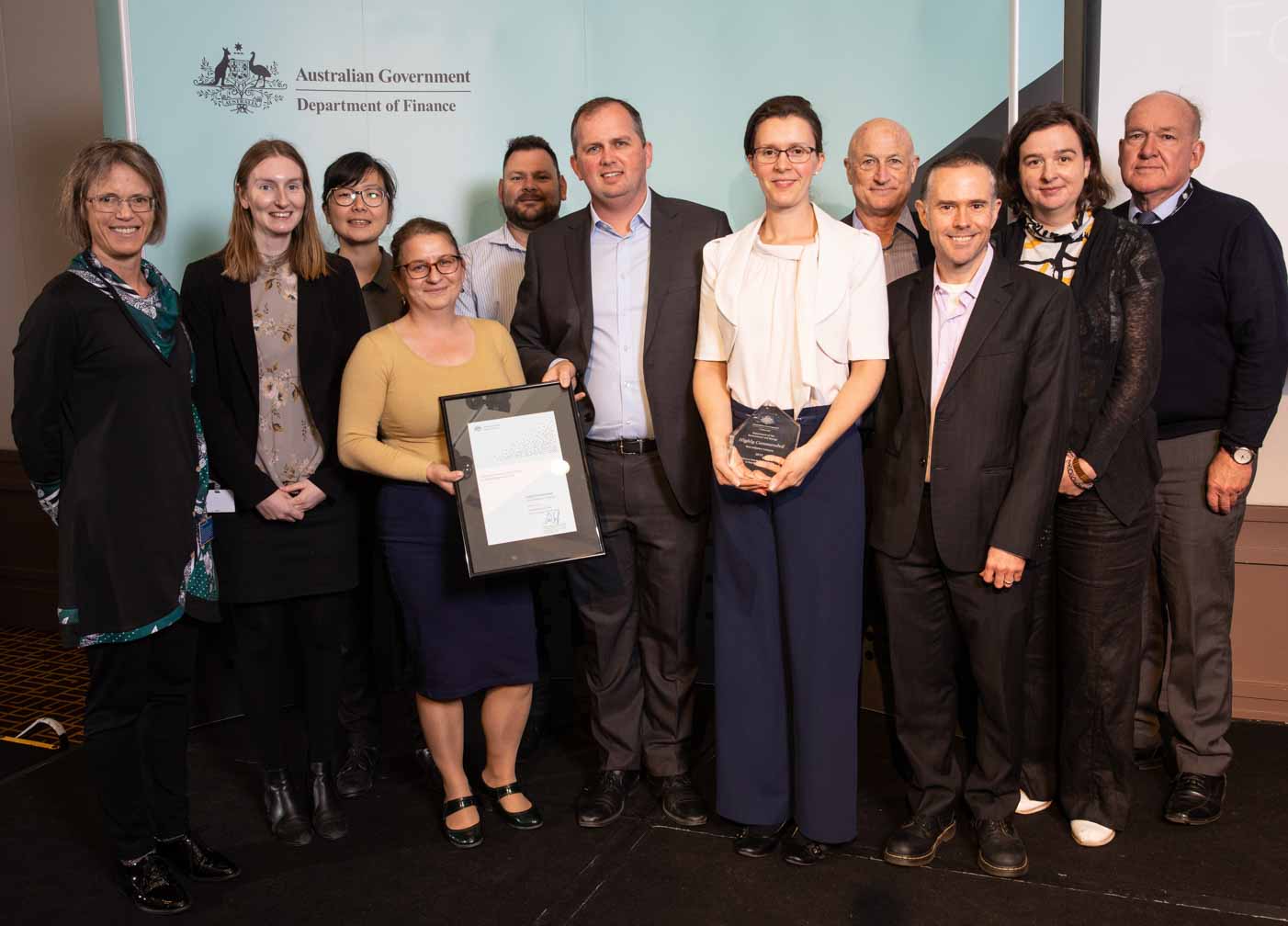
Photo of the Risk Initiative Highly Commended Recipients - Department of the Environment and Energy Climate Compass project
Honourable Mention: Department of Agriculture Grain Import Risk Assessment project
The Honourable Mention was awarded for the department’s contemporary risk management approach to the importing of bulk grain for stockfeed and milling.
The drought in eastern Australia has led to certain classes of grain being in short supply, potentially requiring importation.
This could have broader economic and biosecurity risks which may significantly impact our agriculture and livestock industries.
To address these risks, the Department of Agriculture adopted a highly consultative and collaborative approach with industry to develop a regulated system to import grain.
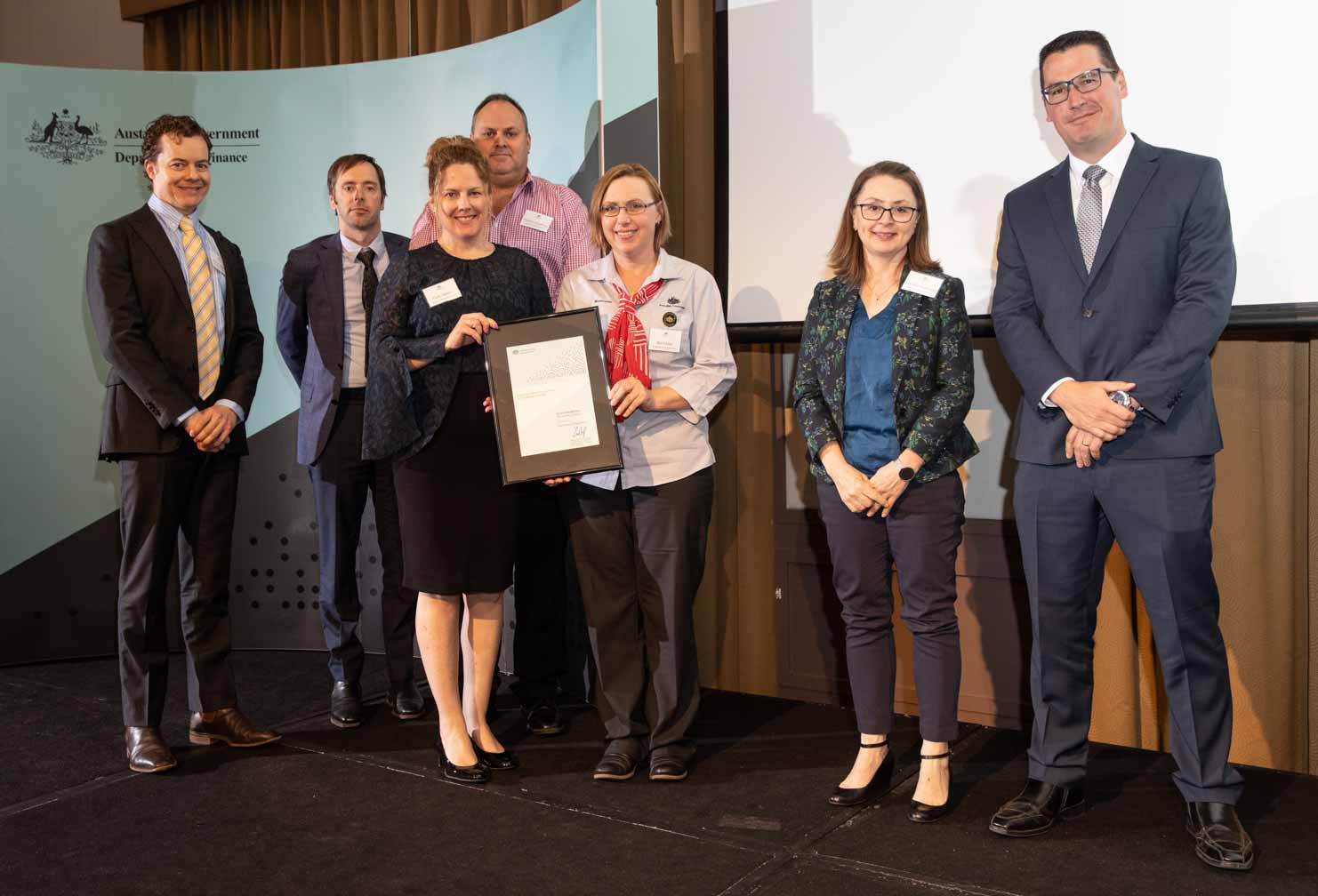
Photo of the Risk Initiative Honourable Mention Recipients - Department of Agriculture Grain Import Risk Assessment project

